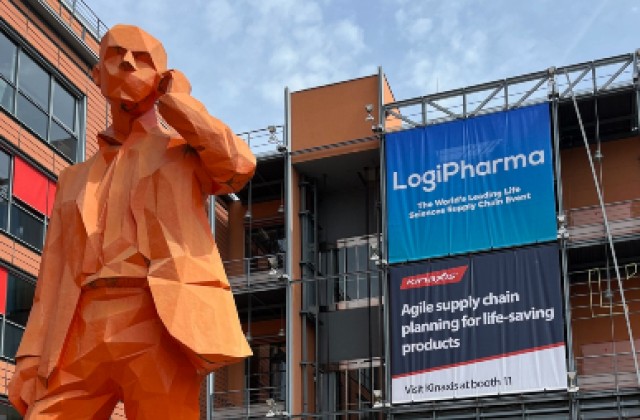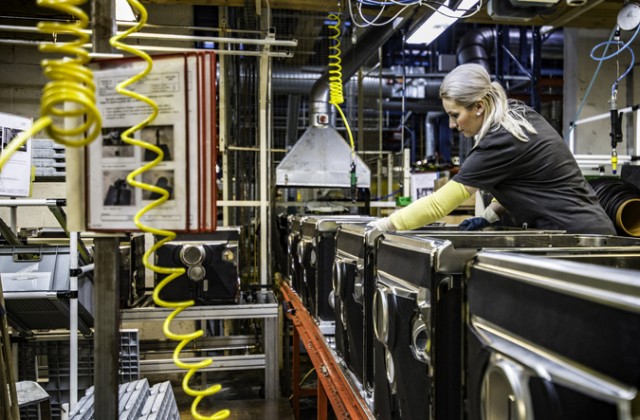As the automotive industry grapples with transformation on multiple fronts — electrification, digitalization, and sustainability — the ability to coordinate complex, multi-tiered supply chains in real time is emerging as a foundational capability. Kinaxis' recent certification by Catena-X underscores a broader industry shift: the need for trusted, standardized, and sovereign data collaboration across the entire automotive value chain.
The promise of Catena-X
Catena-X represents a bold initiative: a unified data ecosystem designed specifically for the automotive sector. It aims to dismantle silos that have long hindered transparency, responsiveness, and coordination among OEMs, Tier 1, and Tier 2 suppliers. With standards for interoperability, security, and data sovereignty, Catena-X addresses a core industry challenge of enabling supply chains to operate as connected, intelligent networks rather than isolated, reactive nodes.
This includes a focus on material and component traceability, where digital tracking solutions, including the Battery Passport, capture lifecycle data to support responsible reuse and effective recycling.
A new layer of capability for supply chain leaders
By achieving Catena-X certification, Kinaxis is strengthening its automotive dedication with an additional layer of readiness to help companies navigating volatility and uncertainty. But the implications go beyond technical compliance. They point to a broader evolution in how supply chains are expected to operate: not only faster and leaner, but also more collaborative, accountable, and resilient.
Trusted collaboration in a multi-tiered world
Automotive supply chains are increasingly interdependent, yet historically fragmented. Catena-X promotes data trust and interoperability; platforms like Kinaxis Maestro make that data actionable. The convergence of these capabilities enables new levels of coordination—not just within a single enterprise, but across the entire ecosystem.
EcoPass and Digital Product Passports support this collaboration by certifying the origin, CO₂ emissions, and recyclability of materials while enabling secure, cross-party data exchange.
Resilience, not just reaction
Disruptions—from chip shortages to policy shocks—are no longer anomalies but constants. What’s changing is how companies respond. The combination of Maestro’s scenario modeling capabilities and Catena-X data integration equips planners to stress-test decisions before they cascade through production and procurement. This is about building proactive, not reactive, supply chains.
Transparency as a strategic lever
Visibility can’t just be a reporting function anymore—with transparency, it’s a strategic differentiator. Real-time insights into tiered supplier capacity, shipment status, and material constraints enable auto leaders to shift from firefighting to foresight. In a networked system where delays in one part of the chain reverberate widely, having a single, standardized view of the truth becomes not just valuable, but essential.
Enabling sustainability with data integrity
Sustainability is no longer a nice-to-have – changing regulations and shifting customer expectations are requiring it. Whether it’s emissions tracking, battery passporting, or green sourcing, regulatory expectations are increasing. Catena-X facilitates the flow of verifiable data needed for compliance while Kinaxis integrates that data into operational decision-making — such as planning vehicle configurations with lower carbon footprints.
To support this, having standardization in sustainability data is critical. Establishing a shared rulebook for Product Carbon Footprint (PCF) calculations ensures not only comparability across the supply chain but also compliance with emerging sustainability regulations. By creating a consistent framework for data reporting, businesses can make data-driven decisions that align with both regulatory requirements and environmental goals.
The Catena-X framework also supports compliance with European sustainability regulations, including battery recycling mandates. It also enables multi-tier collaboration between OEMs, suppliers, and recyclers, reinforcing a shared commitment to circularity and environmental stewardship.
Toward a unified supply chain model
The Catena-X model hints at a future where supply chains are less hierarchical and more universal—a series of connected actors operating under shared rules of engagement. In that future, the ability to orchestrate in real time—across geographies, regulations, and constraints—becomes a core competency. The Kinaxis Maestro platform, coupled with Catena-X certification, positions us to support this shift at scale.
Looking ahead
The Catena-X initiative may have started as a European-led response to supply chain complexity, but its philosophy resonates globally. The automotive sector—long known for engineering excellence—now finds itself needing the same level of sophistication in its digital and collaborative infrastructure.
Certification, then, isn’t the end goal. It’s a signal of where the industry is going: toward a more transparent, resilient, and responsive supply chain paradigm. For those leading the transformation, the challenge is not just to integrate new systems, but to fundamentally rethink how value is created across the network—with sustainability, traceability, and collaboration at the core.
Ready to drive the future of automotive supply chains?
The automotive industry is evolving — and staying ahead of the curve means embracing collaboration, transparency, and data-driven decision-making. With Kinaxis, now certified by Catena-X, automotive companies are equipped to handle today’s challenges, from supply chain disruptions to sustainability regulations.
Discover how Kinaxis can help you transform your automotive supply chain into a more resilient, transparent, and responsive operation.





